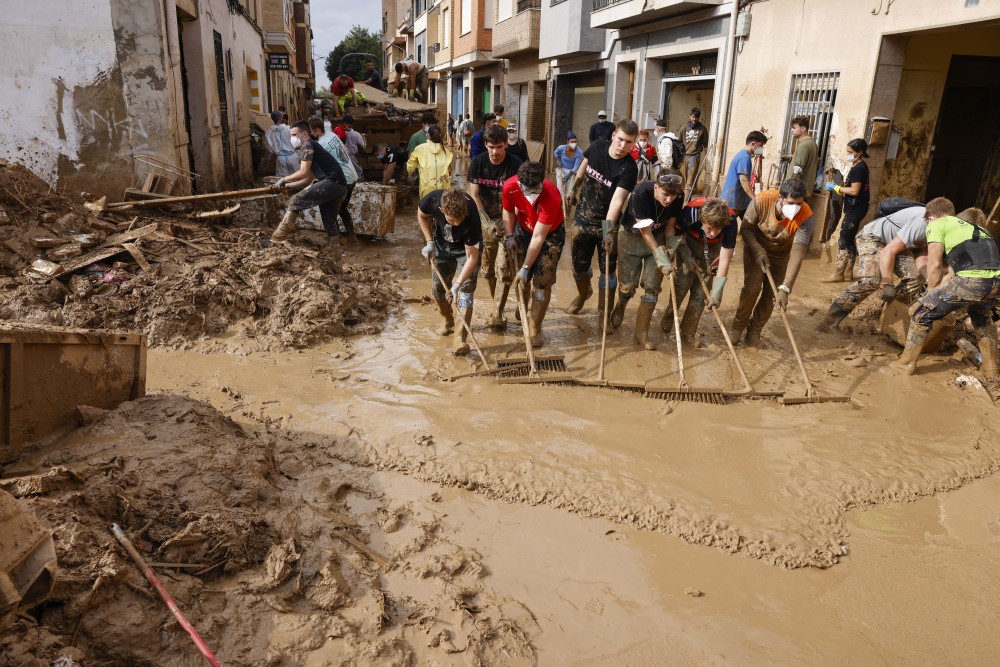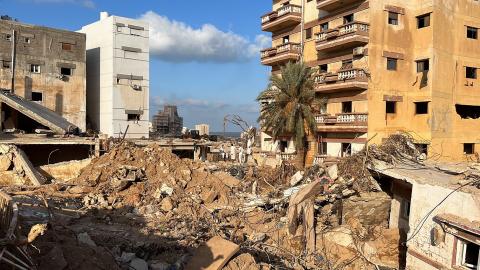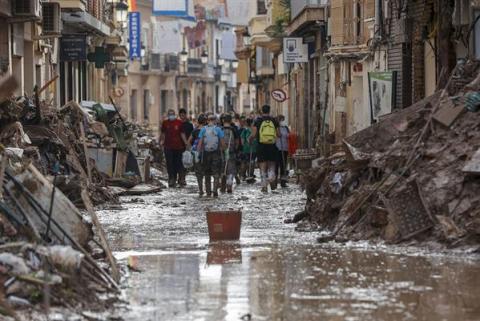“With great powers come great responsibilities.” This phrase, made famous by Peter Parker's Uncle Ben - better known as Spiderman - could well apply to journalism. The media has a remarkable influence on how the public perceives and understands the phenomena occurring around them.
The devastating floods in Valencia have reminded us of the crucial role of language in journalism: in the maelstrom of information following the catastrophe, numerous articles have resorted to the expression “natural disaster”, as if the tragedy were a sort of inescapable sentence dictated by nature. Since last October 29, the date on which the DANA hit the affected areas with force, articles have multiplied on “the most devastating natural disasters in Europe”, “the most deadly natural disasters in Spain in the last century”, “the black history of natural disasters in Spain”, etc.
But what is the real problem with them? Simple: natural disasters do not exist.
The use of “natural disaster” may seem harmless, but it carries a wrong narrative. That is why, for decades, the awareness campaign “Disasters are not natural” has been promoted by academia and several international institutions.
In fact, it has been amply demonstrated that it is not natural phenomena, such as rains, earthquakes and fires, which in themselves become tragedies, but rather the conditions in which our societies face them that determine their consequences. These forces have been present for millions of years, and although we are not their target, our actions, infrastructure, location of settlements, among other factors, do affect the impact of these events on our lives.
It is not natural phenomena, such as rains, earthquakes and fires, that in themselves become tragedies, but rather the conditions in which our societies face them that determine their consequences.
In this vein, for example, we can bring up Hurricane Beryl, this year's first Category 5 hurricane in the Atlantic, which provided a clear lesson on how preparedness and investment in early warning systems can make a critical difference. Although Beryl wreaked havoc in some areas of the Caribbean, its effects on human lives were less devastating compared to previous hurricanes, thanks to the sustained efforts of communities and local governments to improve their warning systems and infrastructure. This experience is a reminder that, although certain climatic events are inevitable, catastrophes do not have to be: the real tragedy occurs when these phenomena interact with settlements located in high-risk areas, precarious infrastructures or insufficient prevention systems.
It should be clear, therefore, that the expression “natural disaster” is ultimately a simplification that prevents a critical analysis of the conditions that make societies vulnerable to natural phenomena. And while it is clear that pitiful events such as “earthquake”, “flood” or “volcanic eruption” that cause massive deaths are news that capture the attention of readers (and their clicks), the media should resist the temptation to reduce these catastrophes to a simple act of “evil” of nature. Rather, they should face the responsibility of reporting on the real causes behind the vulnerability of affected communities.
Nature is not “bad”
Instead of thinking of nature as a dark force that “writes” chapters of pain, we should see these events for what they are: proof of the failure of land management, of the occupation of space, of urban construction, and of public policies for disaster risk reduction. An opportunity to reformulate such policies and with them build a culture of risk and prevention.
Nature does not possess the condition of threatening anyone. It is not a danger in itself, because the identification of a danger comes from a valuation, an exclusively human aspect.
Rogelio Altez, anthropologist at the University of Seville
The idea that nature acts with intent or malice in causing suffering is a concept that, although dramatic, distorts our understanding of these events. As the anthropologist of the University of Seville, Dr. Rogelio Altez, has observed in a recent article, nature “does not possess the condition of threatening anyone. It is not a danger in itself, since the identification of a danger comes from a valuation, an exclusively human aspect. Everything that constitutes or comes from nature and is understood as a threat is the result of human relations, either because some of its manifestations and phenomenal regularities crystallize in that way, or because of the valuation itself”.
The power of words and the duty of the press
To paraphrase Uncle Ben, we can say that with the great power to communicate comes the responsibility to do so accurately. In doing so, journalists would not only contribute to a better informed society, but also a more aware and resilient one, capable of demanding proper and responsible land and risk management from its governments and leaders.
It is time for the media to seriously rethink the language they use: instead of demonizing nature, they should strive to take responsibility for explaining how the lack of planning and institutional weakness are in fact the elements that shape catastrophes. All this, in order to promote a culture of prevention, inviting citizens to see these events as an opportunity to demand changes and improve risk management.
When journalists choose their words, they are not only telling a story, but also shaping their readers' perceptions and understanding.
Ultimately, it is about building a narrative in which we all understand that disasters are not the result of nature, but of the societies we have created, while at the same time it is essential to understand that when journalists choose their words, they are not only telling a story, but also shaping the perception and understanding of their readers. And in this, accuracy is not a luxury, but a fundamental responsibility.





